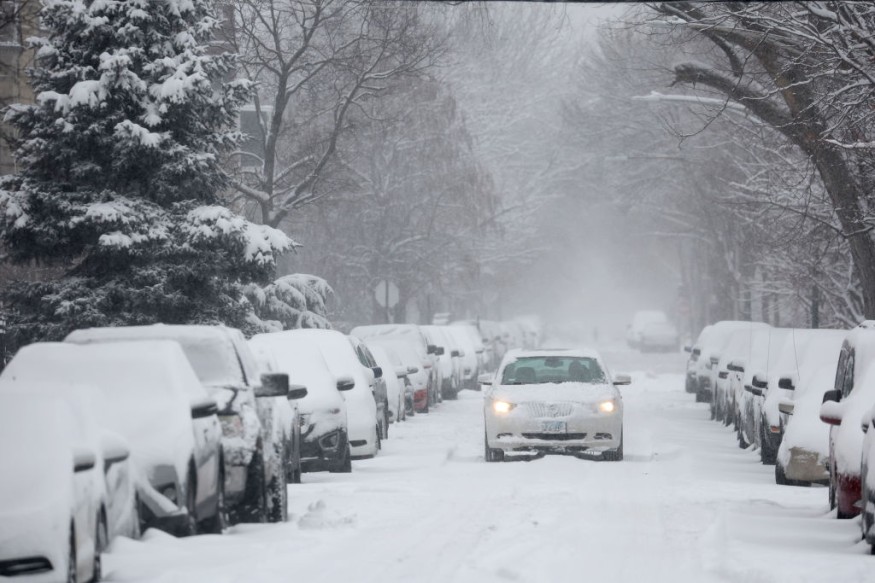The US weather forecast indicates an arctic air coming from an arctic front that will cause a new round of heavy snowfall and winter weather conditions in the northeast US on Sunday, Feb. 27.
US meteorologists highlighted the risk of dangerous travel as the arctic front travels from Canada into the region.
Hotspots for Snowfall

Based on the weather forecast, snow showers are likely to affect Connecticut, New York, Massachusetts, Michigan, Maine, Pennsylvania, New Hampshire, and Vermont.
In Canada, the southern areas of Ontario and Quebec will be affected by snowfall.
According to AccuWeather forecast, snow showers are specifically likely to hit Buffalo, Syracuse, and Watertown in New York. In addition, snowfall may occur in the cities of Boston, Bangor, Providence, and Portland.
However, the forecast reveals the accumulation of snow is not expected to be substantial.
Although snowfall has been forecasted to be not that substantial, the occurrence of poor outdoor visibility is still possible. The snowfall in mentioned hotspot areas can still cause potential disruption to road, rail, air, and sea travel in the next 24 hours.
The National Oceanic Atmospheric Administration (NOAA) - National Weather Service (NWS) stated that the strong cold front will batter the Northeast US region on Sunday afternoon and evening.
Nevertheless, the occurrence of snowfall can still not be ruled out for Sunday morning.
Snow Squalls and Travel Hazards
The forecast said the arctic front may bring wind gusts and snow squalls that can pose a threat to travelers.
As a result, meteorologists are advising to take precautions during road travel, notably on highways and major routes.
Experts reportedly issued a warning that encountering snow squalls on a highway is not safe, advising motorists to take an exit and find an alternative route whenever possible.
Under circumstances where a driver is unable to take an exit, they are recommended to slow down their vehicles, as per AccuWeather.
A snow squall is short-lived but consists of intense bursts of heavy snowfall. Snow squalls can quickly reduce visibility, according to the National Oceanic Atmospheric Administration (NOAA) - National Weather Service (NWS) as cited by CBS News.
Furthermore, snow squalls also bring gusty winds and can last approximately between 30 minutes to an hour.
In the past, this weather phenomenon has been associated with dangerous travel conditions as road visibility can change with little to no warning in a short span of time.
Current Flight Disruption
As the arctic air, along with its winter conditions, has been forecasted to pose danger to travel, flight disruption has been reported across the United States.
According to the FlightAware aviation company's site, there have been 172 canceled domestic and international flights across the US.
From previous winter storms and the arctic front in the Northeast, the John F. Kennedy International Airport (JFK) in New York City and the Boston Logan International Airport (BOS) in Boston city were the most affected airports in the region as thousands of flights were canceled and delayed.
© 2025 NatureWorldNews.com All rights reserved. Do not reproduce without permission.





